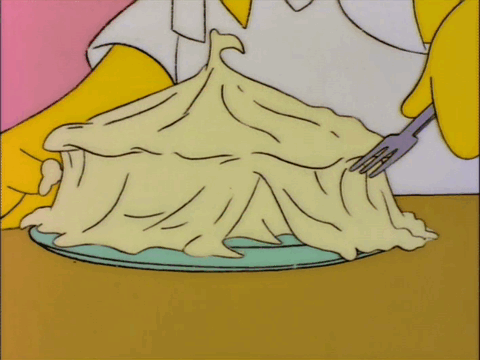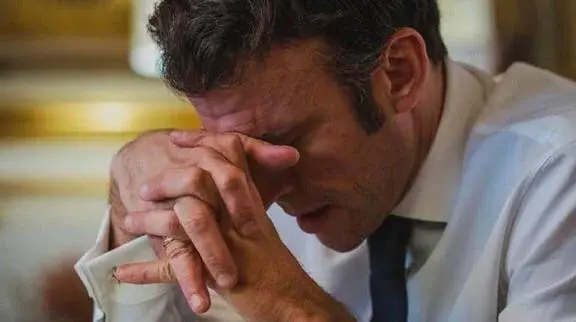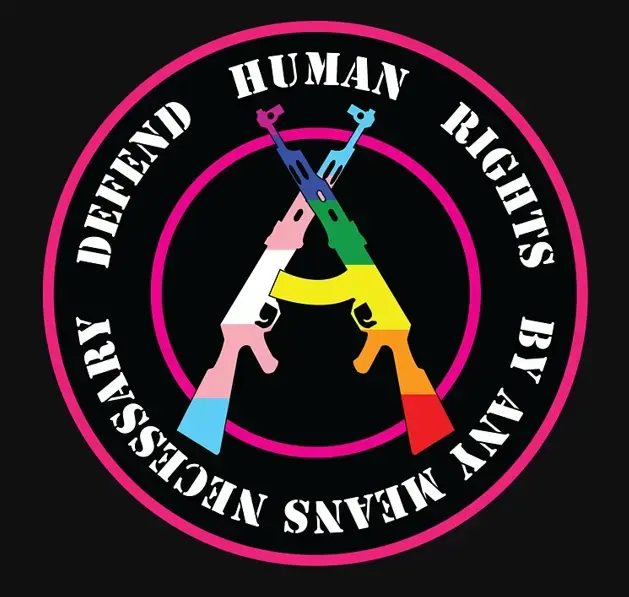I still don’t understand how anybody can defend the foreign policy of the PRC at the time.
the PRC is still here, the USSR is not

And if the PRC hadn’t supported its destruction maybe the USSR would still be here
Cool. I guess every socialist project should just ally with the US and fight all of the other socialist projects. Down with international solidarity, up with helping the Imperial Core keep its hegemony! /s
Now the PRC remains with much diminished allies, having assisted in the ruination of Afghanistan, driving Vietnam away, and with NATO still being the dominant force in the world.
And Chinese policy during that time was a major factor in why that happened. Not the only one, but the USSR didn’t fall apart in a vacuum.
The USSR didn’t fall apart, it was dismantled top-down. Important difference IMO
It was definitely initiated from the top down I would say. But at the end of the day, whatever mass strikes, work actions, and army mutinies occured were not enough to stop Yeltsin and the west from dissolving the SU into what it is now.
I don’t want to mean this as blaming the average Soviet citizen but the fact is; whether from apathy with the old system, or naive hope that westernising would bring prosperity, or being outgunned by Yeltsins military, they and their organisations were sadly unable to defend the Soviet republics. All communists need to take sober lessons here. If it is the first task of the workers’ party to instill a revolutionary spirit in the working class, the second and even harder one must be to convert that spirit into a mass commitment to the socialist project.
Biggest L of the USSR in my opinion is its lack of democratization over the years. After WW2, the soviet government and institutions were very much respected by the people, and the country well established in time and stability, and top spheres of institutions being too independent and not committed to a more, well, soviet (as in workers council) form of government, is a huge loss that paved the way for Glasnost, Perestroika and eventually the dissolution. The book “Socialism Betrayed” makes a really good depiction of this in my opinion.
None of this, though, means that the dissolution of the USSR was desired by its peoples for the vast majority of the people, with some possible exceptions in the Baltics and Georgia due to a history of nationalism and Russophobia being exploited during Glasnost. It’s not a color revolution as happened in, say, Poland. It was a centralised, institutional process that didn’t even involve the people of the country. It’s because of this that it’s important to me to make a point not to use the word “fall” or “collapse” of the USSR, and to make very clear that the dissolution didn’t happen because of any economic failure or due to people’s will as so many people believe, but that it was dissolved top down by a minority of individuals in the government against the overwhelming majority in an antidemocratic fashion, with no economic crisis involved other than the small one generated by Perestroika itself.
Workers councils, led by who, though? United in what structures, along what lines, with what discipline to guarantee it; and what is the context and remnant class character and superstructural drives from which these executive-power worker-councils would emerge and lead if given full power? This would almost certainly just amount to ‘trade-union-consciousness-as-countries’ in the best case — in the worst case and almost assuredly eventually with the help of imperialist powers and the maneuvering of less idealist factions an active counter-revolution and re-establishment of right wing governance ruled by white terror.
Workers councils led by who? Solidarnosc et al. should have had equal power as the central Party power structures because of ‘democracy’? We must realize that a large portion of the eastern bloc states the west eventually helped pry off into capitalist abyss with the help of reactionaries (after having been building active networks to do so since even before WW2 ended, from gladio and propaganda stations and other intelligence operations) were many of them previously run by fascists. Like actual concentration camp death camp holocaust-by-bullets Nazis and collaborators. There were material reasons there was strict maintenance of Party discipline and organization in Eastern Europe like in the Baltics and Hungary etc.; These were political decisions gleaned from political lessons learned from the 1910s domestic revolutionary wars in these Eastern European countries and resultant white terrors in their failures, and the political realities manifested leading up to, through, and after WW2. Democratizing to the degree of ‘council communism’ would mean handing power back to the same people that the Hungarian rebellion in Hungary in 56 let out of prison en masse (arrow cross et al.) turning it into a fascist counterrevolution. The same people that Kruschev himself let out of prison all over the country while dumping as much blame as he could whether it was true or not on Stalin (and half of the things that were true or partially so Kruschev himself acted as a fore-running hatchet-man and architect).
The Great Patriotic War murdering 30 million Soviets including the vast majority of the most politically serious, motivated, and energetic working class youth who would have come up in the next generation had a larger effect than pretty much anything else, and is rarely talked about as being so for some reason. This being followed only a decade later (as Lenin reminds us in “Left-Wing” Communism — by the yardstick of world history a decade “is a trifle that cannot be considered even approximately”) by the Kruschev bloc using this circumstance, winning out in a violent power struggle (remember he shot and imprisoned his opponents and threatened the others into submission, very ironic) and giving amnesty to a HUGE amount of reactionaries including active fascist agitators and militant nationalist rebels from all over the Union, which predictably produced, and severely aggravated existing, contradictions in society when they immediately resumed all the activities they were put in prison for previously refusing to stop; all while severing the USSR from its material history and setting it afloat in idealism and revisionist complacency of “the fight is over, the bad man is gone” in this context, raising the new generations within this framework, and sustained to its demise by the pathological denialism of the nature and proper handling of the emergent second economy which found great advantage in all of this.
These and others are more of a factor than anything for why there was eventually such a complacent malaise in socialist construction, entrenchment of the gerontocracy of opportunists and cowards; and an inability amidst their own contradictions (which Kruschev worsened) to further democratize and open up as Stalin himself had been working toward with the ‘Stalin Constitution’ in the 1930s, before world circumstances became dire, and necessity called for centralized pushes for rapid industrialization, war preparations, rooting out the mass wrecking activities (which even US industrial advisors were shocked by, saying they’d leave a new machine and come back next day and its oil intake would be filled with sand, speaking of this as a commonplace not-at-all isolated incident) and needing to pre-empt and defend in general against 5th columns, which plagued every other nation when war broke out (half of France greeted the Nazis as friends and murdered their own people hand-in-hand with them, same with the Sudeten Henleins, Slovakian Tisos, Belgian De Grelles, Norwegian Quislings etc. which the Soviets couldn’t afford).
The situation wasn’t so simple as “just democratize and decentralize” because there were incredibly sharp and severe contradictions that made that untenable; which Kruschev’s dumbass policies, against which the will to resist was able to be reduced to a few people shot and imprisoned and its terror, and public opinion manipulated in vast broadcasts dumping real, invented, and his own dirt on the still-warm grave of Stalin, after a huge proportion of the most energetic youth were slaughtered in a genocidal imperialist war, worsened severely past the point of being able to handle it. If you let out all of the reactionaries, fascists, anti-Soviet liberal and zionist agitators, nationalist groups who had been armed-rebelling for a decade and a half including during WW2, and all the veterans of the fascist collaborator and fascist partisan groups out of prison who had also many been working with CIA ops facilitated by Gehlen and other US-hired Nazis; you then need to constantly deal with their subsequent activities, and you would be stupid to expand the realms of power to include them acting in these capacities openly. But also once you’ve done that, the contradiction doesn’t go away, so they instead include themselves acting covertly; and since the second economy was simultaneously facilitated-but-denied/ignored by the gerontocracy that was left, they became a match made in heaven together to spearhead the west-comprador-led teardown-and-selloff facilitated and bought-and-paid-for by neo-colonial bankers.
Your comment is a really good one, you make a ton of great points, and I really appreciate it. I never considered the loss of immense amounts of radical elements of the Bolsheviks in WW2 as something significant for the revolution, it’s surprising that I’ve never before seen that analysis, and it’s great that you point that out, making me think quite a bit.
As you make clear, the decisions made by the soviet administration, weren’t made in a vacuum. The conditions of the birth and development of the USSR make it basically a miracle that it lasted as long as it did, surviving extremely destructive events such as WW2, the collectivisation of land, or the cold war. My point isn’t to criticise the USSR itself, or to say that it was illegitimate, it’s just to place some criticism in order to learn from the past and to do better in the future. It’s a fact that political power of certain sorts was too centralised in the USSR, and its dissolution is the perfect example to me of that.
I’ll talk about an example of what I mean by a sovietization of political power. In the 90s, with the dissolution of the USSR, Cuba suffered the loss of its main trading partner. Being blockaded by the US, the island was very reliant on Russian oil and other exports, and the economy of the island took a massive, unprecedented hit, losing a huge portion of its GDP (I wanna say around 30% but don’t quote me on that) in the span of just a few years, in what’s known as the “periodo especial”. The response from the institutions was the opposite of what you’d expect in such a dire situation: the government willingly encouraged people, mainly through worker unions, to be involved in the economic planning and disaster management.
The unions were not only encouraged to promote meetings between workers and asked for policy and ideas to mitigate the effects of the crisis and to increase productivity: they were given power to choose which workers were carrying out redundant or inefficient work (or work that became unnecessary or impossible due to the crisis) and to move these workers to other parts of production or to fire them altogether for them to be relocated somewhere necessary. They were given nearby land upon request for workers to grow organic crops to rely less on purchase of food to sustain themselves, turning every leftover space in the city into an organic food garden. They were given the right to decide generally which sectors of the economy and society would suffer more the brunt of the crisis and the necessary reduction in expenditure to prevent shortages under the policy of controlled pricing. And while of course a lot of this policy was ultimately decided and detailed by authorities, they did so taking into account the democratic will of the workers union as well as the studies done by experts in the institutions. This is a stark difference, in my opinion, with the state-directed Perestroika for example. If you want to read on this issue, there’s a great book called “how the worker’s parliaments saved the Cuban revolution”, by Pedro Ross. Millions of people participated democratically and actively in the restructuring of the economy in one of the most all-encompassing examples of democracy I’ve ever seen.
Again, all of this isn’t to diss on the USSR, or to say that the reason why the decisions made by the country boil down to “soviets bad”, it’s a much more nuanced discussion and as you say there’s a huge variety of reasons why the democratization of the USSR wasn’t as intense as it should have been in my opinion. It’s just a good frame in my mind to analyse the reasons for the dissolution of the USSR, and to improve in future socialist societies learning from the mistakes of the past.
deleted by creator
Between that and the invasion of Vietnam, China was really brain broken during that time.
It’s just political realignment. When the US is strong, we support the USSR. When the USSR is strong and threaten our interest, we support the US to keep the Soviet ambition in check.
Play both sides and coming out on top have always been China’s strategy to defend its national sovereignty as a weak nation since independence. We only have two allies: the People’s Liberation Army and Navy.
The fact is that we’ve won - you can’t say that about the USSR. To win, you have to get rid of that idealist fantasy and willingto play dirty when it comes down it.
It’s just political realignment. When the US is strong, we support the USSR. When the USSR is strong and threaten our interest, we support the US to keep the Soviet ambition in check.
The US was strong, and yet, the PRC sided with the US. Also, I’m not really sure how siding with the US in Afghanistan and attacking Vietnam helped the PRC or socialists in the world.
Also, I am going to note that it’s not just the USSR whom the PRC aligned against, but national liberation movements of other countries that fought against colonialism.
The fact is that we’ve won
Has the PRC won, though? NATO is still up, in a dominant position, carrying out genocides. The allows of the USSR suffered massively from the loss, with many now being loyal vassals of the worst genocidal empire in the world.
I am also going to note that the USSR DID try to ally with the US. That led to a destruction of its industries, death of millions, and many more plights.
I’m not really sure how siding with the US in Afghanistan and attacking Vietnam helped the PRC or socialists in the world.
Those were part of the broader proxy wars to crush the USSR.
A lot of this really just comes down to how politics work in the real world. None of that idealistic fantasy about siding with the people we like or don’t like.
The photo that OP posted happened just a year after the Prague Spring when the USSR invaded Czechoslovakia, and months after the USSR and China clashed in a border skirmish in 1969. From China’s perspective, the Soviets are showing their imperialist ambitions and they have to be stopped at all cost.
This is not a communist perspective.
This is just a national chauvinist perspective.
You’re arguing that the actions of the PRC state made the PRC state safer and more powerful.
Others are arguing that this was done at the expense of the power, well-being and lives of dozens of other communist parties and hundreds of millions of working people they represented. That the PRC may have gained power but Communists as a whole lost it and millions of workers were betrayed into abject poverty and left at the mercy of rapacious capitalist imperialists in the process.
Simply saying “but it worked the PRC state did get safer and more powerful by betraying hundreds of millions of workers to the depredations of capital” isn’t something any communist should be happy with.
Those were part of the broader proxy wars to crush the USSR
Cool. I guess destroying your allies on behalf of the worst empire of the world is a great strategy. I suppose, you would support another socialist project nuking the PRC to ‘play both sides’.
A lot of this really just comes down to how politics work in the real world. None of that idealistic fantasy about siding with the people we like or don’t like.
Okay, so, do you suggest that the USSR should have abandoned helping anti-colonial liberation movements around the world and put effort into just allying with the US, liberalising its economy, and destroying the PRC, preferably before it even formed?
You are yet to actually explain how destroying your allies is helpful.
It is also rather clear that you aren’t exactly interested in international solidarity or in socialism prevailing in the world in general.The photo that OP posted happened just a year after the Prague Spring when the USSR invaded Czechoslovakia, and months after the USSR and China clashed in a border skirmish in 1969. From China’s perspective, the Soviets are showing their imperialist ambitions and they have to be stopped at all cost.
So, the PRC helping the most prolific imperialist force in the world that is carrying out genocides even today, and which has been engaging in colonialism in general by destroying its own allies is completely fine realpolitik that everybody should engage in, but the USSR attempting to prevent liberalisation and potential alignment of a state with NATO is bad? I guess the USSR should have instead armed a pro-NATO militant org there instead.
Apparently, the imperialism of NATO shouldn’t have been stopped at all costs, if you are to be believed.
EDIT: It honestly feels like you are trying to just invent a way to present the PRC’s foreign policy at that time as some sort of masterful 10D chess strategy, when it was clearly a major misplay, whether you consider realpolitik or not.
The best way to oppose social imperialism is to enthusiastically support regular imperialism
This is especially silly if you consider that the USSR was helping other countries fight against colonialism, while the PRC both helped the premier imperialist force in the world to win in Afghanistan, and engaged in what could be argued to be imperialism against Vietnam.
By that logic, the USSR should have nuked the PRC the moment it took action against Vietnam to ‘play both sides’ and to fight against PRC’s imperialism/‘imperialism’.
That was sarcasm, I think
EDIT: It honestly feels like you are trying to just invent a way to present the PRC’s foreign policy at that time as some sort of masterful 10D chess strategy, when it was clearly a major misplay, whether you consider realpolitik or not.
It’s not “me” who’s saying this. This is just standard Chinese narrative on why the PRC sided with the US to destroy the USSR. Of course they have to make it sound like they’re doing the right thing.
You also need to understand that Sino-Soviet relationship had always been tense. It wasn’t just the Russian Empire getting involved in the Eight-Nation Alliances to carve out the Qing Empire and annexed the Northeast, but also when Stalin insisted on the independence of outer Mongolia to assert its influence in Central Asia, his insistent on using Port Arthur (Lushunkou) as “shared” Sino-Soviet naval base (i.e. stationing Soviet troops in Chinese province), retaining the control of Chinese Eastern Railway, and the refusal to return Vladivostok (Haishenwei) to Chinese sovereignty.
Some of these major issues got settled after the Mao-Stalin meeting in 1949-50 during the “honeymoon” period but the threat of “Soviet imperialism” has always been latent. After Stalin died, the Soviets went mask off with their intentions and started to threaten Chinese national sovereignty.
It’s a lot more nuanced than people are making it out to be.
It’s not “me” who’s saying this. This is just standard Chinese narrative on why the PRC sided with the US to destroy the USSR
So, you uncritically believe the PRC on why destroying its allies was good, and choose to regurgitate that narrative when it’s obviously ass?
You also need to understand that Sino-Soviet relationship had always been tense
Not exactly a reason to actively help NATO take down your allies and make NATO’s positions in the world stronger.
It wasn’t just the Russian Empire getting involved in the Eight-Nation Alliances to carve out the Qing Empire and annexed the Northeast, but also when Stalin insisted on the independence of outer Mongolia to assert its influence in Central Asia, his insistent on using Port Arthur (Lushunkou) as “shared” Sino-Soviet naval base (i.e. stationing Soviet troops in Chinese province), retaining the control of Chinese Eastern Railway, and the refusal to return Vladivostok (Haishenwei) to Chinese sovereignty.
Sure. And you claim that this is a good reason to destroy your major ally and shoot yourself in the foot?
Also, you talk about realpolitik, and now you bring up past offences when realpolitik in large part revolves around ignoring grudges. You are clearly not thinking about this in any sort of rigorous manner, but are just trying to invent a way to present the relevant actions of the PRC as somehow good.Some of these major issues got settled after the Mao-Stalin meeting in 1949-50 during the “honeymoon” period but the threat of “Soviet imperialism” has always been latent
By your logic, the USSR should have destroyed the Chinese communists during the civil war and handed China over to anti-communists. That would have been a very swell move for both the USSR and the workers of the world, wouldn’t it?
After Stalin died, the Soviets went mask off with their intentions and started to threaten Chinese national sovereignty
‘Went mask-off’? You mean the state that was assisting multiple national liberation movements in the world in Asia, Africa, and the Americas at the time was ‘going mask off’?
You also have not presented any sort of evidence for the USSR seriously threatening the PRC’s sovereignty.
Also, are we to believe that NATO did not threaten the PRC’s sovereignty?It’s a lot more nuanced than people are making it out to be
You are not doing a good job of presenting this supposed nuance, and have already contradicted your claim that ‘this is just realpolitik’ when you brought up then-past offences of the USSR and, even less relevantly, of the Russian Empire (and forgot to bring up the offences of the western powers like the British Empire, including the fact that they were and are actually trying to threaten the PRC’s sovereignty).
None of that idealistic fantasy about siding with the people we like or don’t like.
Also, I didn’t quite pay attention to this part in my previous reply.
This is an incredibly silly sentence. We are not arguing that the PRC should have sided with the ‘people the PRC liked’ as opposed to the ‘people the PRC didn’t like’. We are arguing about the PRC acting against the interests of the working class of the world while, I would argue, hurting itself in the long term (if you destroy your allies for the benefit of your enemy, you end up in a worse position - that is how politics work in the real world, and none of that wishy-washy ‘everything the PRC does is good and has the interests of the working class in mind’).
But it didn’t hurt China in the long run. China was able to procure tech from the West and more or less steal the West’s manufacturing capabilities thanks to the short-sightedness of Western capitalist who didn’t look part cost savings from labor arbitrage. That’s the real long term goal. China began technologically lagging behind the West around the Ming dynasty, so the long term goal was to technologically catch up with the West after lagging behind for at least two dynasties. And the funny thing is China used the same exact playbook the late Ming did to bridge the tech gap: they gesture towards embracing whatever popular ideology and governance is in vogue at the West if you would only give us the tech. For the late Ming, it was Jesuit priests and Catholicism, and for modern times, it is technocrats and liberals. But unlike the West, China rarely makes the same mistake twice. The problem with the late Ming/early Qing was that the West would eventually figure out the ruse, and imperial China lacked the means of being truly innovative after the tech transfer was cut off. This was not so with the PRC.
Just because the PRC and the Soviet Union share the same ideology doesn’t mean they are above geopolitics. Geopolitical alliances are ever-shifting. The Sino-Soviet split officially ended with Gorbachev’s visit to Beijing, so it lasted only a couple of decades. And now Russia is closer to China than ever even when they don’t even share the same ideology. Vietnam and China are also very close no matter how much cope Burglanders have of Vietnam hating China. As another example for why geopolitics have little to do with ideology, just look at how almost all Sunni Arab countries have betrayed the Sunni Arab Palestinians to the Zionists while the Sunni Arab Palestinians’ greatest saviors are a bunch of Shia Muslims with Shia Iranians as the head. Meanwhile, the tech gap is a centuries-old problem that must be resolved. This is what it means to truly have long-term vision, to be able to distinguish between mid-term vision and long-term vision.
Just because the PRC and the Soviet Union share the same ideology doesn’t mean they are above geopolitics.
But it does??? What the fuck is class solidarity meant to mean otherwise, it was and is in the best collective interest of the working class for socialist countries to support each other
Then Stalin shouldn’t have insisted on the independence of outer Mongolia, the use of Port Arthur (Lushunkou) as joint Sino-Soviet naval base as pretense to station Soviet troops in Chinese province, refused to return the Chinese Eastern Railway (Changchun Railway) rights to China, and keeping Vladivostok (Haishenwei) that the Russian Empire annexed as part of the Soviet territory.
All these infringed on the Chinese national sovereignty.
And these happened during the Sino-Soviet “honeymoon” period when Stalin was still alive. It got even worse after he died, as the USSR turned revisionist and started to expand on its “imperialist ambitions” (a terminology I don’t personally agree with but this is not a controversial thing at all to say in China).
But it does???
History disagrees with you. The Soviet Union and the PRC inherited the contradictions of Tsarist Russia and the Qing Dynasty, and you can’t just handwave that away. Russia was one of the eight nations in the Eight-Nation Alliance that came to oppress China during the Century of Humiliation. Russia also had unequal treaties with China. To make a long story short, Lenin was cool about annulling those treaties while Stalin was less so. Meanwhile, Khrushchev threatened to nuke China. Russia should be paying China reparations for its role in the Century of Humiliation if anything. The relationship isn’t equal because Russia owns China for historical wrongs and ought to repay China in the form of reparations. “Uh aktually we’re no longer Russia we’re the Soviet Union.” Yeah, and look what that got you.
the ignorance of the terrible impacts which hampered development which followed the loss of Soviet industrial aid and the capital to modernize (and not have to have peasants smelt pig iron in their backyards), and loss of advisors for proper, efficient, safe productive practice and managing contradictions with wrecking and between the new proletarian manager and worker relationships that the soviets went through and had valuable lessons in, and countless other things is astounding. Defending China doing shit like funding muhajideen terrorist groups and child-r*ping warlords alongside the largest most violent capitalist empire in history in the US to attack the Soviets and and helping make the suffering of Afghanistan what it became and is to this day is grotesque and unhinged, almost as Deranged as post split chinese foreign policy. And is TRIPLY ignorant because China has had to face its own blowback FOR EXACTLY THAT, due to them hosting and financing CIA/ISI terrorist training camps in Pakistan on the border of Xinjiang.
You’re making incoherent gestures based on abstract images youve imagined
But it didn’t hurt China in the long run
TIL that destroying your allies and making your alliance less capable of effecting change in the world doesn’t hurt you.
Or are you going to claim that the PRC+Russia today are more capable of fighting off NATO? When NATO is now capable of openly and to the loud support of its people carrying out invasions, genocides, and coups with nobody to stop them doesn’t hurt the PRC?
I do hope that the PRC comes out on top in its struggle with the US, but claiming that the PRC+Russia can better withstand NATO’s harassment than the PRC+the USSR is very silly.
China was able to procure tech from the West
While also making itself quite dependent on the West and opening itself to having its exports and imports cut off, and while also diminishing the rights of its workers (albeit, this latter point has to do with the liberalisation of the economy, and not, strictly speaking, with the silly activities to destroy its own allies and potential allies).
Thankfully, the PRC seemingly did manage to overcome being gradually cut off from western technologies, but the PRC also does seem to keep surrendering ground to NATO, such as allowing its banks to submit to the demands of NATO.and more or less steal the West’s manufacturing capabilities thanks to the short-sightedness of Western capitalist who didn’t look part cost savings from labor arbitrage
Notably, neither this point nor the previous required the PRC to actively help NATO in Afghanistan or to invade Vietnam.
I don’t have time to deal with the entire rest of the comment right this moment.EDIT:
And the funny thing is China used the same exact playbook the late Ming did to bridge the tech gap: they gesture towards embracing whatever popular ideology and governance is in vogue at the West if you would only give us the tech
And that’s kind of a silly strategy to employ against the opponent that betrays its own allies, and that can and does very easily smear its enemy-states that employ the same systems of governance and the like anyway.
Also, a lot of people do seem to not understand that there is a significant difference for the working class between living under a planned economy and one with a significant degree of privatisation. I am not sure if you are one such person, but I am getting the expression that that is a likely case.But unlike the West, China rarely makes the same mistake twice. The problem with the late Ming/early Qing was that the West would eventually figure out the ruse, and imperial China lacked the means of being truly innovative after the tech transfer was cut off. This was not so with the PRC.
So, you are just going to leave it at that, with no basis provided for how that is not the case with the PRC that NATO would figure out the ‘ruse’ (actually just playing the capitalism game and making yourself a source of cheap labour and resources for NATO on conditions that make you extremely competitive compared to the other neo-colonies and using that advantage to get ahead in the hopes that the West would not react fast enough - I do not see how there is any ‘ruse’ involved). This is especially silly, considering that NATO has been increasing its anti-PRC effort.
Just because the PRC and the Soviet Union share the same ideology doesn’t mean they are above geopolitics
Which is irrelevant to the topic, unless you want to argue that it’s in the PRC’s interest to ally with NATO and then be crushed by them after it has no strong allies left instead of siding with states that have ideologies similar to yours and which have proven themselves willing and able to fight against colonialism and help others do so as well.
Geopolitical alliances are ever-shifting
And the point here is that this shift was bad for the communist and anti-colonial movements at large, and cost the PRC its allies. I argue that it was ill-conceived, and am not seeing any good arguments in favour of this shift.
The Sino-Soviet split officially ended with Gorbachev’s visit to Beijing, so it lasted only a couple of decades
So, it only ended when the socdem who admitted to wanting to destroy the USSR took over the USSR, privatised the economy, and sought friendship with colonial metropoles instead of their dominions. Just swell.
And now Russia is closer to China than ever even when they don’t even share the same ideology
Now Russia is garbage and will need to be handled if and when NATO is gone.
Russia is now a semi-peripheral state - it is on the colonial periphery of NATO (and very likely now also of the PRC, but I have not studied the economic relations between Russia and the PRC enough) while also having its own periphery (in the form of some of the former parts of the USSR, such as Ukraine). It is both much weaker than the USSR and also not only isn’t interested in the world’s anti-colonial struggle beyond opposing NATO and, maybe, elevating itself from the semi-peripheral status, it is directly interested in simply becoming a metropole.Why you are praising the PRC for being close with obviously shitty capitalist states and also for distancing from and sabotaging communist-led ones is beyond me.
As another example for why geopolitics have little to do with ideology, just look at how almost all Sunni Arab countries have betrayed the Sunni Arab Palestinians to the Zionists while the Sunni Arab Palestinians’ greatest saviors are a bunch of Shia Muslims with Shia Iranians as the head
Oh, hey, another example of religious organisations having no principles. Cool.
Not sure why you wanted to bring up people arguing about fiction being shitty to each other as a reason for the PRC also doing shitty things that hurt the world and make its enemies stronger.You’ve mentioned NATO numerous times. Are you talking about the West in general because NATO is specifically an anti-Russian military alliance. What does NATO have to do with China? NATO is first and foremost about containing Russia. Their strength or lack thereof isn’t immediately relevant to China. Not even the most subservient Atlanticist seriously thinks about invading China due to its logistical impossibility if nothing else. The West’s strategy for containing China is through the three island chains (Taiwan, Okinawa, Japan, the Philippines, Australia, New Zealand). They already tried to have a NATO clone in Asia called SEATO which didn’t pan out much in the end.
Like, you can’t be this picky at my above comment while at the same time be this sloppy in your reply. Come on now.
Those were part of the broader proxy wars to crush the USSR.
why would that be good
There’s an element of realpolitik that states have to conduct, and the path China took certainly managed to preserve the state in the midst of a hostile world, which can’t be discounted. But that doesn’t mean it’s the only path that could have worked, potentially.
The realignment towards the US had massive negative consequences for socialist movements around the world. If, in a better timeline, the Split hadn’t happened, or if it had been healed, so many better things could have potentially happened.
deleted by creator
Generally I feel with the Sino Soviet split, USSR was right for the wrong reason, PRC wrong for the right reasons.
What?
Khrushchev (Cornman) was a cringe revisionist, but he did some good stuff. China was right on being critical of Cornman, but their actions after that were cringe.
Yeah pretty much Krushchev and the USSR were usually on the correct side (Cuba, Vietnam etc).
The PRC were often correct in their criticism of the USSR’s revisionism but lead to bad stuff like supporting Pol Pot and the Muhjahaden.
Probably a lot of complicated geopolitical shit, but Khruschev is right there so why not just blame him?


Corn is a tool of ultimate power, uncaring for what ends its used. It built Khrushchev but also Xi. We need to deeply consider these lessons.
Good point, I think I will!
I know I’ve read something Carlos Martinez wrote that was pretty good at discussing the material reasons for the split, but for the life of me I can’t find it; maybe someone else knows what I’m talking about.
It didn’t come out of nowhere, but Khrushchev recalling Soviet advisors and tech transfers was a HUGE provocation. China had and still does highly value advancing their technological position. Reform and Opening Up was as much about advancing their tech capabilities as it was developing the productive forces. Also, there really was an ideological difference over the USSR seeking peaceful accommodation with the west (ironic given how China’s position in the 70s overshot the USSR’s stance on this by a good margin). That’s not the whole story, just a couple parts that I can recall.
Khrushchev also threatened to nuke China. There’s that as well.
Is this the article?
Mao, being a true adherent of Socialism in One Country, knew: there can only be one.
Iirc, China used to support Japan and the JCP until the early 1980’s. Mostly bc of the Soviet-Sino split and bc of Japan’s economy. I guess there was a small period where China, Japan and the Koreas could have created their own economic bloc. But that quickly ended, the USSR ended the split in 1988 with Gorbachev visiting China, and Japan’s economy got fucked.
It’s why Trotskyism lives in my mind like Homer and the clown college ad.

There are hundreds of trotskyists orgs. They can’t all be terrible right? Right?











